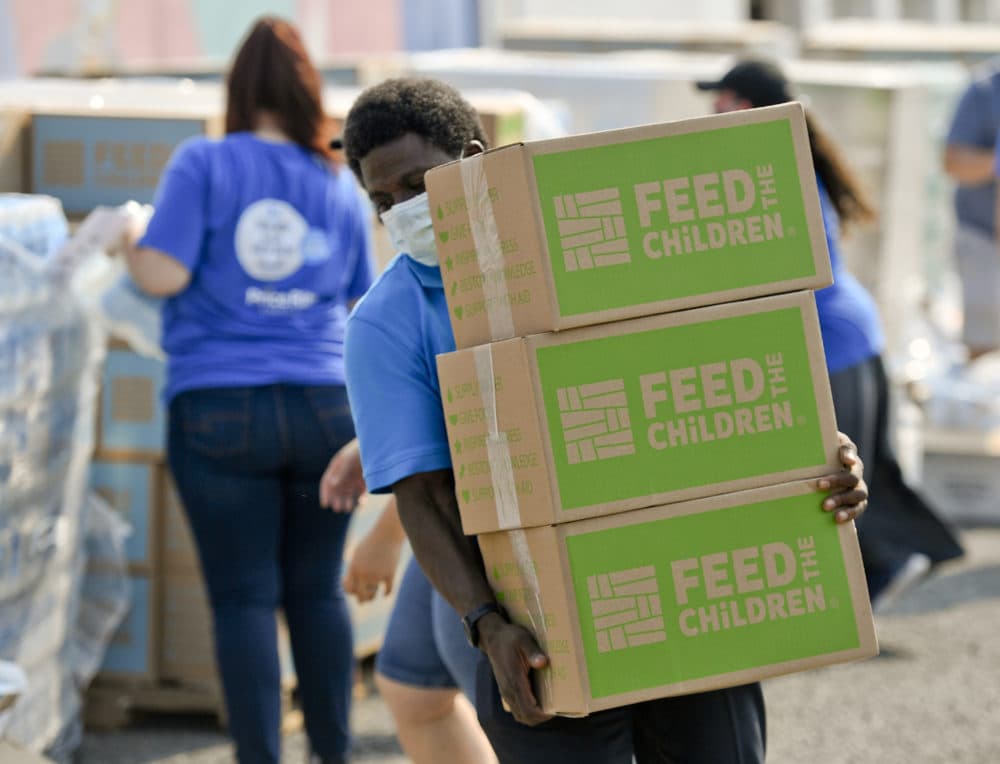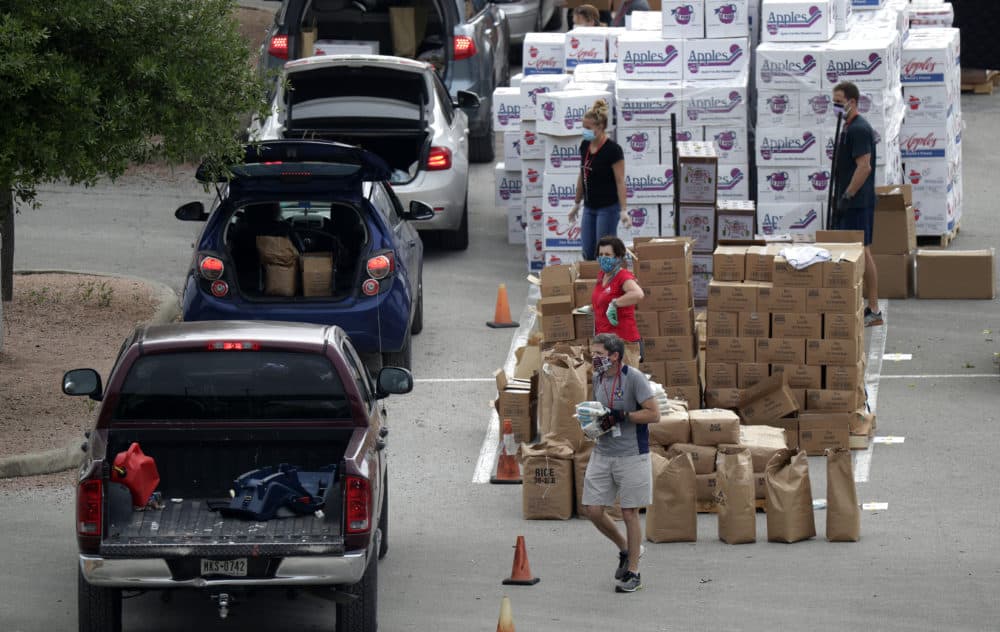Advertisement
Commentary
It’s Giving Tuesday. Give What You Can — And Then Some

If those who forget the past are doomed to repeat it, those who never lived through it won’t know what the hell they’re talking about. We learned that during the Great Recession, when the number of long-term unemployed soared. Employers turned up their noses at hiring such people, spuriously reasoning, if you’re out of work so long, you must be a loser. These bosses’ parents and grandparents who remembered the 1930s could have given them a reality check: The economy lingers in the sewer long-term in a financial collapse. Hence lots of long-term jobless.
On this ninth annual Giving Tuesday, designed to offset gimme-gimme sentiment during “this festive season … when Want is keenly felt,” similar amnesia has wiped blank too many of our leaders’ memories about the Want wreaked by COVID-19.
Mitch McConnell and Company are exercising what little conscience they possess by inventing lame excuses against adequate help for those made jobless by the pandemic. That they weren’t of sentient age when the 1918 flu pandemic similarly obliterated business and work is no defense (Nancy Pelosi wasn’t, either, and she’s not heartless).
Yet if we’re honest, many of us mimic McConnell’s stinginess in our personal charity. I cop to being a bit of a Scrooge a year ago at this time, when I gave less than I could. My redemption — disbursed not by ghosts but by boning up on “effective altruism” --may, like Ebenezar’s salvation, offer a lesson.
Effective altruism is meant as a flexible menu with choices, not as the Ten Commandments.
Effective altruism, founded by thinkers like emeritus Princeton philosophy professor Peter Singer, advocates evidence-based giving to the best charities. Recommendations have blossomed online, at sites such as GiveWell, Charity Navigator and Singer’s The Life You Can Save. What I learned from the latter's donation calculator is that for those of us blessed to be employed during the pandemic, charity need not mean emptying your children’s college fund.
The calculator staggers the minimum suggested percentage of income that donors should contribute to charity as their means rise. It computed that I should give at least 1% of my five-figure salary. Truthfully, I wasn’t giving nearly that much; I strive to now. (Volunteering time instead of giving money is an acceptable alternative.)
If this level of giving seems paltry, Singer bends over backward not to be like an ancient prophet, demanding repentance with scalding scoldings, for reasons grounded in human psychology.
He concedes that most people could give more and still live comfortably, even if that meant giving up bottled water, pricey vacations, and their BMW or Audi. But regardless of what philosophers say, we’re hard-wired to privilege family and those we can see in our daily lives for our money and time, not far-away strangers, Singer says. We’re also loath to open our wallets far in excess of what those around us are giving.

“Asking people to give more than almost anyone else gives risks turning them off, and at some level might cause them to question the point of striving to live an ethical life at all,” he wrote in the book that bequeathed its name to his website. “Daunted by what it takes to do the right thing, they may ask themselves why they are bothering to try. To avoid that danger, we should advocate a level of giving that will lead to a positive response. Because I want to see those in poverty receive as much as possible of the aid they need, I think we should advocate the level of giving that will raise the largest possible total …”
Effective altruism is meant as a flexible menu with choices, not as the Ten Commandments. Vox notes that “if you want to maximize your donation’s impact, give abroad." America has people who are truly destitute, but fewer than in the developing world, and better cared for by our safety net, even if it cries out for repair. But if it’s your COVID-crushed compatriots you want to aid, Charity Navigator’s ImpactMatters site suggests the best philanthropies in major U.S. cities.
And while I favor causes that assist my fellow homo sapiens, as a former animal shelter volunteer, I applaud donors to animal rights groups, where effective altruism also offers guidance. Others will give to save-the-planet efforts. (Not to rain on any philanthropy in this era of pandemic-onomics, but effective altruism fills a vital need, given deep-pocket donors’ frequent support for rich universities, museums and cultural institutions. These are worthy groups, but they do little for the neediest.)
The takeaway is that finding the best charities in your preferred cause is a mere matter of a few keystrokes. You can give what you can afford without guilt. As Giving Tuesday kicks off the season of giving, may we savor the gift of these agreeable, ennobling realities.
